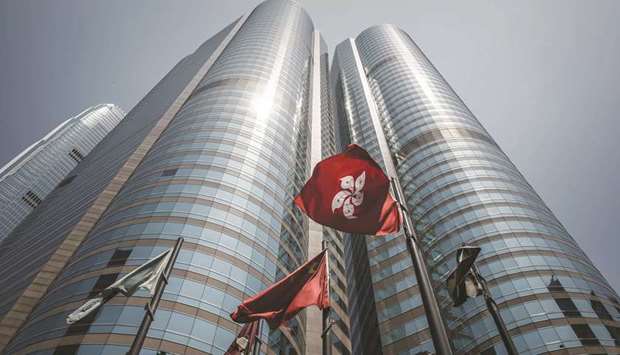Asian markets mostly rose yesterday following a strong lead from Wall Street but traders remained on edge about the global economy, while oil prices extended gains after Russia reassured over its intention to cut output.
Trading remained choppy across the region after a key US gauge raised a red flag warning of recession, adding to Federal Reserve worries about growth, uncertainty over Brexit and China’s stuttering economy.
While the optimism that has characterised most of 2019 has been shaken in recent weeks, a weak round of US data was unable to prevent a rebound in New York on Tuesday, with all three main indexes ending higher.
And OANDA senior market analyst Jeffrey Halley said the reaction to the so-called yield curve inversion — which was last seen ahead of the financial crisis a decade ago — had been “quickly consigned to history”.
He added that “the volte-face in sentiment suggests to me that despite all the noise, markets are flip-flopping on short-term data as we await the conclusion of the only real game in town: the US-China trade talks”. Top-level negotiators will Thursday meet up again to try to hammer out an agreement with US Trade Representative Robert Lighthizer telling National Public Radio: “If there’s a great deal to be gotten, we’ll get it. If not, we’ll find another plan.”
There are hopes for some sort of deal for Donald Trump and Chinese counterpart Xi Jinping to sign off on as soon as next month. The US president “is desperate for a deal”, Clark Packard at the R Street Institute think-tank said.”I don’t think he wants to go into 2020, running for re-election, without something here.”
After fluctuating through the morning, most Asian markets were higher.
Hong Kong rose 0.6% and Shanghai finished 0.9% higher with Sydney adding 0.1% and Singapore up 0.4%. Mumbai rose 0.5% and Wellington surged 1.3% after the New Zealand central bank hinted at an interest rate cut.
However, Tokyo and Seoul each slipped 0.2%, while Manila, Taipei and Bangkok also retreated.
Regional energy firms have been given a lift by rallying oil prices after major producer Russia said it was on track to slash output this month, keeping it on track to meet commitments to a deal with Opec.
“Investors are becoming more confident they can trust Russia’s relationship with Saudi Arabia, and supply disruptions in Venezuela are raising concerns the market will tighten further,” Takayuki Nogami, chief economist at Japan Oil, Gas and Metals National Corp, told Bloomberg News.
On currency markets, the pound was stable as British MPs prepare to vote on a number of options for the way forward after wresting control of the Brexit debate from Prime Minister Theresa May.
They will now choose whether to cancel Brexit, hold another referendum, vote for a deal including a customs union and single market membership, or leave the EU without a deal, though the government is not bound by law to implement the decision.
However, in a fresh twist, May’s twice-rejected divorce plan could be revived after Brexit hardliner Jacob Rees-Mogg — one of its most vociferous and high-profile critics — said he would back it, while another, Boris Johnson, hinted that he also could.
However, it still lacks the vital support of May’s Northern Irish coalition partners, who have denounced it, leading to concerns Britain could be heading for a general election to try to end the stalemate.
In Tokyo, the Nikkei 225 closed down 0.2% to 21,378.73 points; Hong Kong — Hang Seng ended up 0.6% to 28,728.25 points and Shanghai — Composite closed up 0.9% to 3,022.72 points yesterday.

An external view of the stock exchange building in Hong Kong. The Hang Seng closed up 0.6% to 28,728.25 points yesterday.


